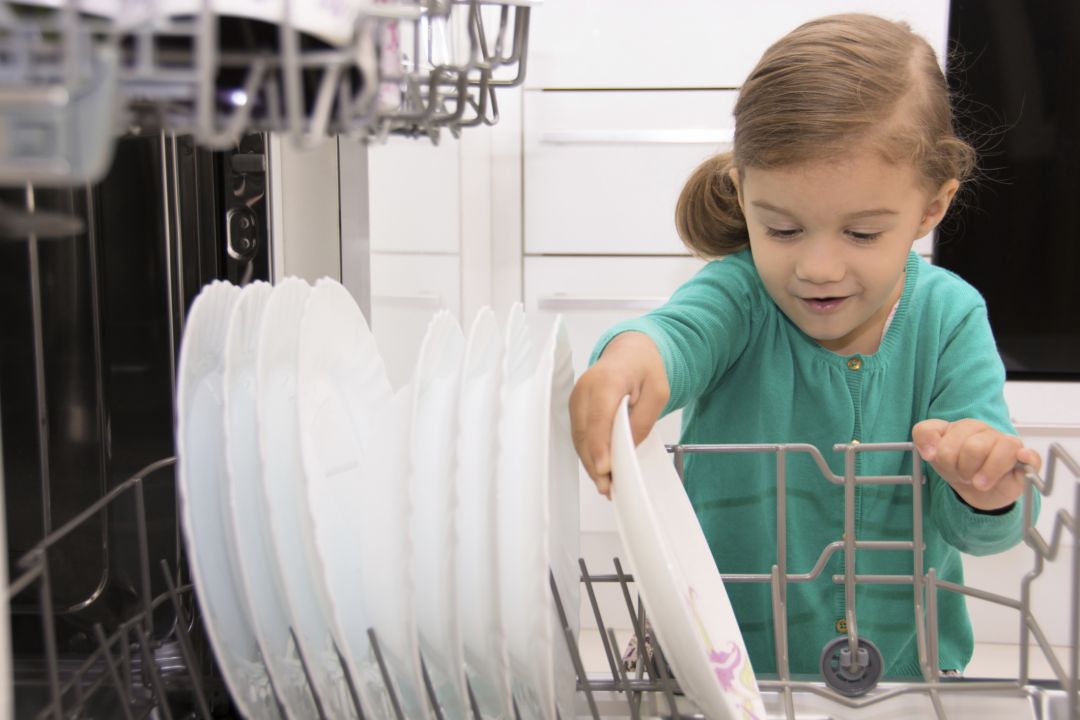Can you really do it all?
How do you keep all the plates spinning, asks Ilona Boniwell, mother of four teenagers and a baby, Psychologies’ parenting expert and one of most respected positive psychologists in the world? She tells us how she attempts it - for starters, get the kids to help

People often ask me ‘how on earth do you manage to do it all? To juggle the five kids, a busy career and frequent international travel?’ I would like to respond with something along the lines of: ‘I am one of those people who doesn’t need much sleep. So I get up at 6am, spend an hour meditating or exercising, sit down with my cup of tea to plan the day ahead, and then get the kids ready for nursery and school.’
Only this is not true – I desperately need my eight hours of sleep, am pretty inefficient in the morning and must have a big strong cup of coffee just to wake up. In fact, the weekdays are pretty tough. And so are the weekends.
Sometimes I do manage to do it all, I manage to keep all the plates in the air, and sometimes I don’t. Sometimes I get too exhausted to even pick up a book, which is my personal favourite leisure time activity. But then I know I am not alone – how many mothers out there spend most of their time fluctuating between working and doing things for others, never finding that precious time for themselves?
Here are my family survival tips:
Some of these may come across as too tough or unusual, but trust me – without these I would’ve been dead long ago, or – at the very least – divorced for the second time.
● With your older children, place the foremost emphasis on responsibility. The self-determination theory explains how, in the long run, autonomy and responsibility are key to motivation and happiness. They want to go out? Ask ‘How are you going to get home on time?’, instead of ‘What time should I pick you up?’ If one of them is asking for a new phone, ask ‘What are you planning to do to earn the money?’
● From the age of 13-14, boys and girls are perfectly capable to handle their own washing (even though they do need to be shown how to do it quite a few times, from separating the whites from the colours through to reading the little labels on the inside of clothes). Not only would this help any mother’s already sufficient workload, but it has some wonderful side effects. In fact, kids’ clothes become miraculously less dirty!
● I am not even mentioning children cleaning their bedrooms – that’s a given. You can start from the time your baby starts crawling – ‘please put this toy there’ or ‘we must tidy up now’, etc. My two-and-a-half-year-old was jokingly offered a job in his nursery yesterday – the staff were so impressed with his determination!
● We have a ‘no pocket money’ rule in the house – all the money has to be earned, and only when there are jobs available, not when your teen has decided he wants to work. Cleaning the car, mowing the lawn, babysitting are all paid at around £3-4 per hour, which is pretty decent. But saying that, there are plenty of unpaid chores as well, such as laying the table and washing the dishes. Toddler Theodore is in too – he is not allowed to touch the plates, but can lay out cutlery. He is very proud of himself for doing it.
● Whatever happens, my husband and myself try to take at least one evening a week for ourselves – going for a meal, to the cinema or simply for a walk. This is our recharge time that brings the meaning to it all and that keeps us going. Once or twice we even managed to pull a ‘strength date’ together – designing a special day using the best strengths of both of us. According to research from Barbara Fredrickson, such micro-moments of connectedness can lastingly enhance a couple’s happiness.
But one thing I am still working on is the personal me-time – those magical 10 minutes spent meditating or simply doing nothing whatsoever. Maybe with a little help from Andy Puddicombe (see below) I will get there…
More inspiration:
Read The Second Shift: Working Families And The Revolution At Home by Arlie Hochschild with Anne Machung (Penguin Books, £9.49) and Reasons why we don't slow down and how we can on LifeLabs
See ted.com/talks/andy_puddicombe_all_it_takes_is_10_mindful_minutes
Visit positran.fr/products?lang=en for lots of ideas on how to use the strengths cards









